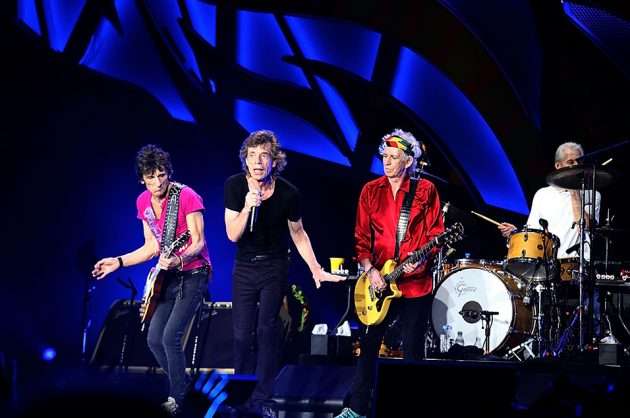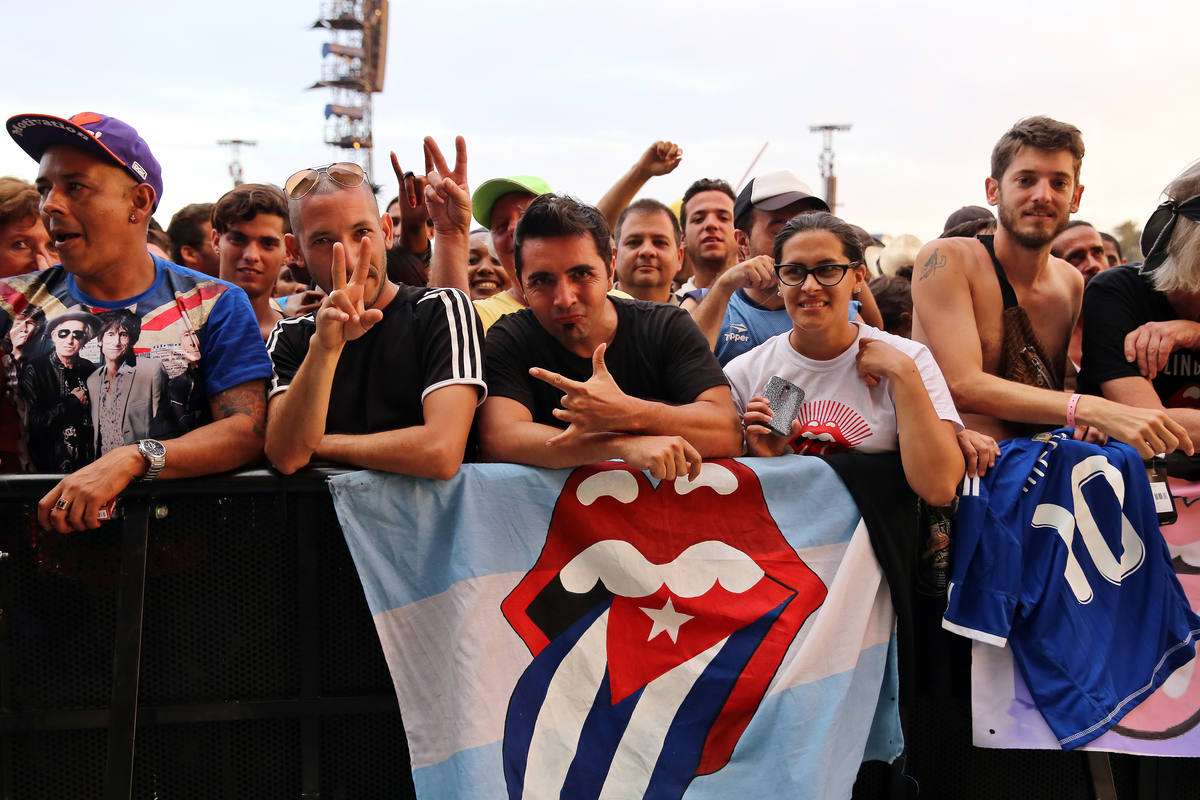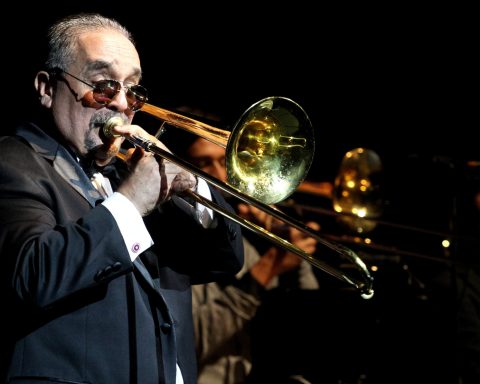seven years ago the Rolling Stones concert in Havana made headlines in the American press and on television. Cuba was in the hype, as it had been during the Elián González storm or the first visit of James Carter in 2002.
But this time the protagonist of the story was neither the family separation/division, nor the Varela Project, mentioned by the former president in the Aula Magna of the University of Havana, nor even the same Obamawhich had already flown to Argentina, but rather a band with a satanic breath, aged and yet capable of mobilizing millions of people of different generations around the world.
In a classic text, “Peripheral Vision: US Journalism and The Third World,” william dorman analyzed the professional practices of the media in the mainstream towards the Third World, and specifically towards Latin America. One is the use of Cold War codes that appear regularly without justification or explanation. “Pejorative phrases,” he argues, “act as buzzwords: they are short, have a high emotional content and are widely accepted, as if they had an unspoken meaning”.
In the article “Rolling Stones Tell Giant Crowd ‘Times are Changing’ at Cuba Debut”, by Daniel Trotta and Frank Jack Daniel, socialized by AOL News, made transparent the use of these codes and the limitations of decontextualized and ideological coverage, based on presumptions and ignorance of internal Cuban dynamics. And for the record: this is not atypical. Organs like The New York Times, The Wall Street Journal and Los Angeles Times they followed similar paths when referring to or covering the event. With practically the same gestures, the same words.
His lead It contained a factual element —the celebration of a massive free concert of the band in Havana— mixed immediately with a false proposition from beginning to end: for the first time since 1959 —they said— the island has been exposed to Western culture! !, an ideology to which a time period of one week is even located, the one that went from the visit of President Obama to the celebration of the concert on the grounds of the Sports City.
A Cuban from the island might be tempted to wonder if he had been living in Borneo or the Kamchatka peninsula until now. It was tantamount to saying that Obama’s visit and the Show of the Stones had been a veritable breach in the North Korea of the Caribbean, an idea consonant with those Cuban images of overwhelming circulation in the United States of old cars, dilapidated buildings and other gatherings.
An English bishop once put it: to exist is to be perceived. And Cuba was and still is, for many, exactly that: an island untouched by globalization. The empire of Buena Vista Social Club. Jurassic Park, a 45-minute flight from the skyscrapers of the downtown of Miami. Ah, the unrepentant buzzword, with all their drag: “The Rolling Stones put to dance a crowd that attended the free open-air concert that they offered in Havana on Friday, thus closing with a flourish a week of commitment from the Western world to the communist island who once censured the veteran British musical group.
The other handicap of the coverage was its ahistoricism: “Castro’s revolutionary government saw counterculture bands like the Stones and The Beatles as dangerously subversive and banned their music on TV and radio”, so what happened in the Sports City would constitute a cultural defeat brought by British musicians. Everything that has rained from the 70s to today was left out of the game, as if by magic.
In the first place, the experience of an entire generation was ignored, which at first, before the official resignation to disseminate the music of groups such as the Beatles and the Stones themselves, managed to pass their records from hand to hand and take them to their parties, either brought from abroad by merchant sailors and officials or by the so-called plates, that is, LPs shot by Cuban radio technicians. And also that young people at that time listened to the WQAM station in Miami. An arc of official prohibitions that ends, symbolically, with the inauguration of the statue of John Lennon in a park in El Vedado.
That report had another problem: it did not even mention the permanent presence of American music on Cuban radio and TV —which, as is known, is not in private hands—, nor in the new circuits of audiovisual consumption brought by the work by own account. For any informed observer, rock is not a foreign element to Cuban culture, in which it has followers and fans as in any part of the world, and even festivals of the genre, with the frequent presence of non-Cuban bands.
But other important things were left out of the pipeline: first, that at that concert many Cubans knew the lyrics to the songs, albeit with the inevitable linings interspersed; the second, that there was interaction with English and non-English speaking foreigners in spontaneous dance circles, among the most beautiful of the concert.
I remember that in his speech at the Gran Teatro de La Habana—a well-polished gem with clear and distinct messages for specific audiences on both sides of the Strait—Obama was much more intelligent. The word “change”, one of the slogans that led him to the presidency, had a polysemic display: it could denote the end of the embargo/blockade, a change in historical relations or a change of regime. One of the changes was the following: mention Celia Cruz and Gloria Estefan, knowing in advance that they knew each other in Cuba. despite not being officially released.

In addition, he alluded to Pitbull, whom they did put on official channels. “The people of our two countries have sung the songs of Celia Cruz and Gloria Estefan and now they listen to reggaeton and Pitbull,” the president said. Clearly, another element ignored by the media coverage: the Miami-Havana porosity, increased by the immigration reform, round trips and visits to the island by Cubans and Cuban-Americans of several generations.
Obama and his advisers wanted to bury the last vestige of the Cold War in the Americas, but the media remained trapped in their old webs. They say, however, that what happens is convenient. Furthermore, as everywhere else, Americans draw their conclusions about what the world is like from the information they receive from their media.
Their work on Cuba is usually quite deficient, to the point that it has a negative effect. Boomerang for common people and celebrities who traveled to the island on educational leave, as happened to Beyoncé and Jay-Z. Convinced at the beginning that they would be invisible on the island, they were immediately recognized by their fans, both at the paladar that they attended on their first day in Havana, and at the Saratoga hotel on Paseo del Prado. There were even kisses in the air and additional escorts for that eternal mania for Cubans to play.
Perhaps one way to alleviate the problem would have been to move away from the widespread practice of covering Cuban events from offices in Washington DC, New York or Los Angeles, and stop uncritically recycling what others say; that is, finish throwing in the trash what james aronson once called the “hearsay journalism. “Parachute Journalism”, invoiced by true professionals of the trade, but lacking in work and miracle in the needs of Cuban culture.

















